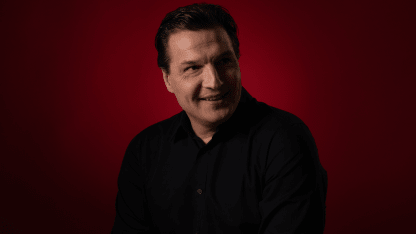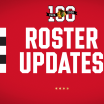Thankfully, Eddie O is healthy and humbled, all the better to chronicle his careers in concert with Perry Lefko, a decorated Canadian author who - this is not breaking news - first met Olczyk at a racetrack. Eddie is a savant around four legged athletes too. NBC doesn't reroute him to the Kentucky Derby during the Stanley Cup playoffs because he's just another pretty face.
He was a hotshot kid, though, and in 1984 became the first American prospect drafted in the first round by his hometown team. The Blackhawks selected him third overall, but only after trading up from their sixth spot. The Los Angeles Kings chose the defenseman they wanted, plus Tom Glavine, who opted to become a star pitcher for the Atlanta Braves.
The Blackhawks had targeted Olczyk all along, and if memory serves, teammates did not greet him with a red carpet. "Some people might have felt the fanfare for me was over the top," he suggests. But Eddie won everybody over in a jiffy, as he did wherever he went after Chicago. He was a hit in Toronto with the Maple Leafs and in Winnipeg with the Jets. Eddie could not only light up goalies, but locker rooms.
With the New York Rangers, Eddie encountered Coach Mike Keenan, an apostle of creative tension. Possessing the only vote that counted, he nominated Olczyk as the team pinata. Eddie was a frequent healthy scratch, but he took the high road, where there's always less traffic. Fellow players loved his adamantine disposition, but he still suited up for only 37 regular season games, short of the cutoff to have one's name engraved on the Stanley Cup. When the Rangers won it after 54 years, teammates petitioned the NHL to have Olczyk included.

















